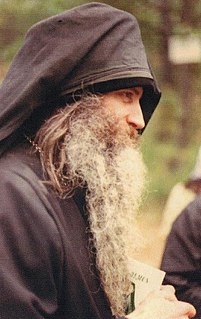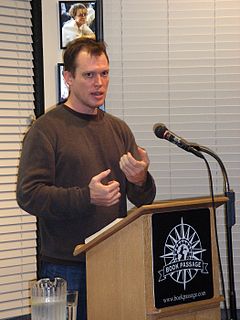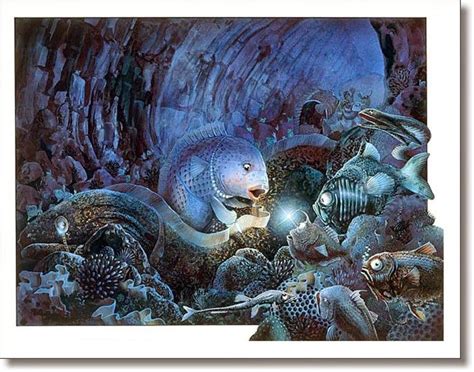A Quote by Seraphim Rose
When conversion takes place, the process of revelation occurs in a very simple way - a person is in need, he suffers, and then somehow the other world opens up. The more you are in suffering and difficulties and are 'desperate' for God, the more He is going to come to your aid, reveal Who He is and show you the way out.
Related Quotes
In the face of suffering, one has no right to turn away, not to see. In the face of injustice, one may not look the other way. When someone suffers, and it is not you, that person comes first. One's very suffering gives one priority. . . . To watch over one who grieves is a more urgent duty than to think of God.
I do prefer doing more takes. There's something very organic that comes from the first take, but certain things come out. More details come out, in the way another actor says something. It's always this investigative process. You come further and further to the truth, the more you escalate. I like to do a lot of takes. I have a hunger for it. I like to see what there is to discover in a scene, that hasn't been thought of.
I know what God did for me. I know that He is my way out and my way in. He's my way out of all this havoc and my way into paradise. He suffered for me and for everybody listening. God loves us so much. He tried a lot of things to get our attention. He tried a lot of things to get us back to Him. So He said, "I'll tell you what. I'm going to make it real simple for you. I'm going to send my Son. He's going to take on all your iniquities and all your sins. He's gonna die in your place so you can have everlasting life. All you've got to do is accept that.
If you stay in the mainstream of life, in other words, you let in the suffering of the world that invariably enters all of our lives by the time we're in our middle years, when we've experienced a few deaths and read a few headlines. Famine, poverty, abuse, you can't keep that all blocked out. If you let those things teach you, influence you, change you, those are the events that transition you without you even knowing it to become more compassionate. In other words, you hold onto your values, but you do it much more inclusively, humbly and in an open ended way. Suffering takes you there.
The Work is four questions and a turnaround. The Work is a way to identify and question the thoughts that cause all the suffering and violence in the world. The Work is a very, very simple process. It's for anyone who can answer a question that is willing to. It takes a bit of willingness and an open mind.
The more authentic you become, the more genuine in your expression, particularly regarding personal experiences and even self-doubts, the more people can relate to your expression and the safer it makes them feel to express themselves. That expression, in turn, feeds on the other person's spirit, and genuine creative empathy takes place, producing new insights and learnings and a sense of excitement and adventure that keeps the process going.
Do you feel that you have lost your way in life? Then God Himself will show you your way. Are you utterly helpless, worn out, body and soul? Then God's eternal love is ready and willing to help you up, and revive you. Are you wearied with doubts and terrors? Then God's eternal light is ready to show you your way; God's eternal peace ready to give you peace. Do you feel yourself full of sins and faults? Then take heart; for God's unchangeable will is, to take away those sins, and purge you from those faults.
I think it's more, at least at the time, a sense of abstraction. My mind doesn't really work in a way where there's a definitive sense of something. I go one way and then it opens up into a million different ideas, and somehow, when you look at the art, Buddhist art, or particularly Tibetan art, you know, it's a similar thing. All of a sudden there are a million lotus leaves and you're following one to the next and to another, and I related to that, and it felt simple and easy to me. And it made me feel smart.
The secret of adventure, then, is not to carefully seek it out but to travel in such a way that it finds you. To do this, you first need to overcome the protective habits of home and open yourself up to unpredictability. As you begin to practice this openness, you'll quickly discover adventure in the simple reality of a world that defies your expectations. More often than not, you'll discover that “adventure” is a decision after the fact-a way of deciphering an event or an experience that you can't quite explain.


































